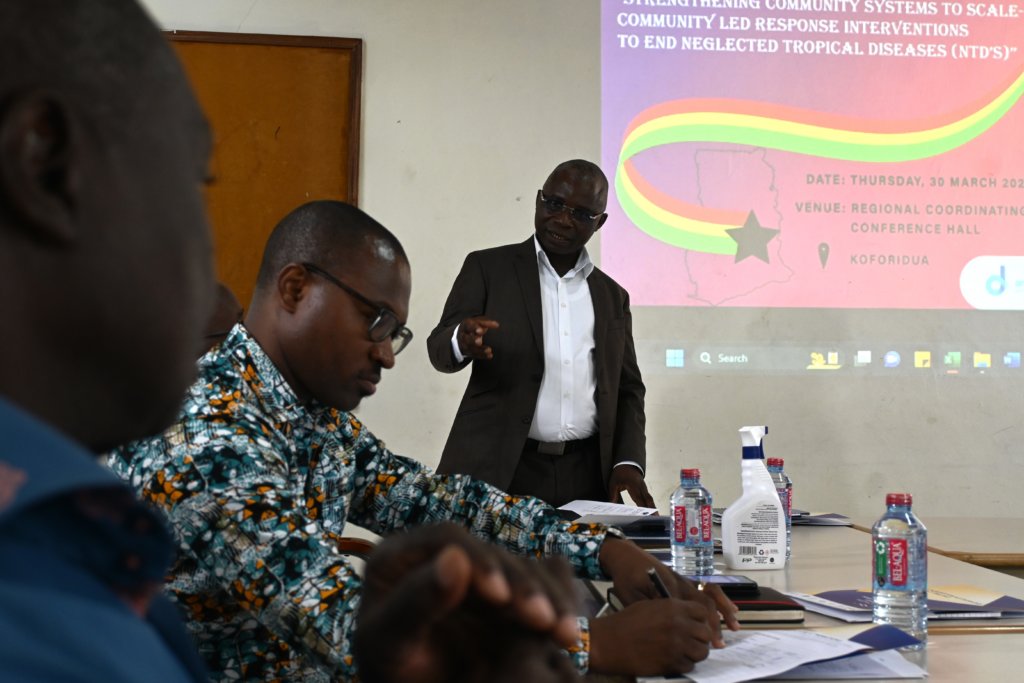Unlike other diseases that are amply projected by health organizations and have received raving attention and massive interventions across the globe, Neglected Tropical Diseases (NTDs) seem to be lagging behind. Although the WHO and countries have put in place policies and strategies put in place including the Neglected Tropical Diseases Programme which was introduced in Ghana in 2006, these have faced severe challenges, preventing the attainment of the various goals globally.
NTDs thrive largely under tropical and subtropical conditions and are associated with several risk factors which include poor sanitation, limited access to clean water and healthcare, inadequate resources and living in proximity with animals. These diseases affect the most deprived and marginalized communities in the world and continue to impact negatively on their quality of life, economically and socially.
Examples of Neglected Tropical Diseases are; Lymphatic Filariasis, Onchocerciasis, Schistosomiasis, Soil Transmitted Helminths, Trachoma, Buruli Ulcer, Dracunculiasis, Leprosy, Rabies, Human African Trypanosomiasis, Leishmaniasis, Yaws, Scabies, Dengue, Chagas disease etc.
Over the years, the Ghana Health Service has made some strides in the fight against NTDs. There have been very useful interventions in the course of combatting NTDs, however a lot remains to be done.
Aside the efforts of the government, other stakeholders including NGO’s have been on board to contribute their quota towards this course. As an organization whose focus include championing projects geared towards promoting the health status of individuals, Hope for Future Generations is currently embarking on a project funded by Anesvad, Spain.
The project is titled that seeks to Strengthening Community Systems to Scale-up Community-led Response Interventions to End NTDs. The project is being implemented in partnership with Rural Watch for a period of 2 years and is aimed at eliminating skin-NTDs and reducing its burden on both affected people and health systems. The project will be implemented in 10 endemic NTD districts in the Eastern Region namely; Denkyeamboa, Birim North, Birim South, Kwaebibirim, Akyemansah, Achiase, Okyere, Lower Manya-Krobo, Asuogyaman and Kwahu West
The project, which was launched in Koforidua on 30th March 2023, brought together key stakeholders from the regional and district levels and NGO’s and the media to deliberate on critical issues and strategies regarding the project’s implementation.
Speaking at the launch, the Eastern Regional Director of Health Services, Dr. Winfred Ofosu highlighted some challenges faced by persons affected by NTDs, especially children of school going age who suffer neglect and stigmatisation which affect their academic performance or cause them to drop out of school. He also cited the economic burden faced by adults affected by the diseases, as they are often financially handicapped and saddled with poor living conditions. He was optimistic that the project will push the frontiers of bringing relief to affected persons and stressed on the need to foster effective collaboration among stakeholders in the project implementation.

Similarly, the Eastern Regional NTD Focal Person Mr. Christian Fiador expressed his confidence in the project and noted that the Eastern Regional Health Management team is poised to partner with stakeholders to ensure quality care for persons with NTDs. He further expressed gratitude towards the Donor, Anesvad, for expanding the number of projects they fund in the region on NTDs.